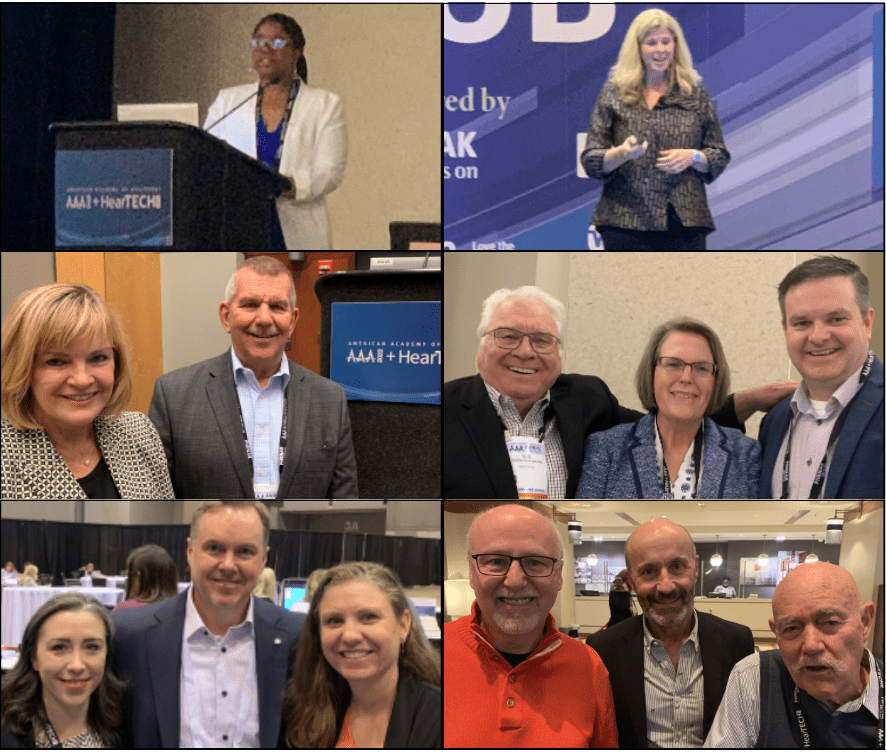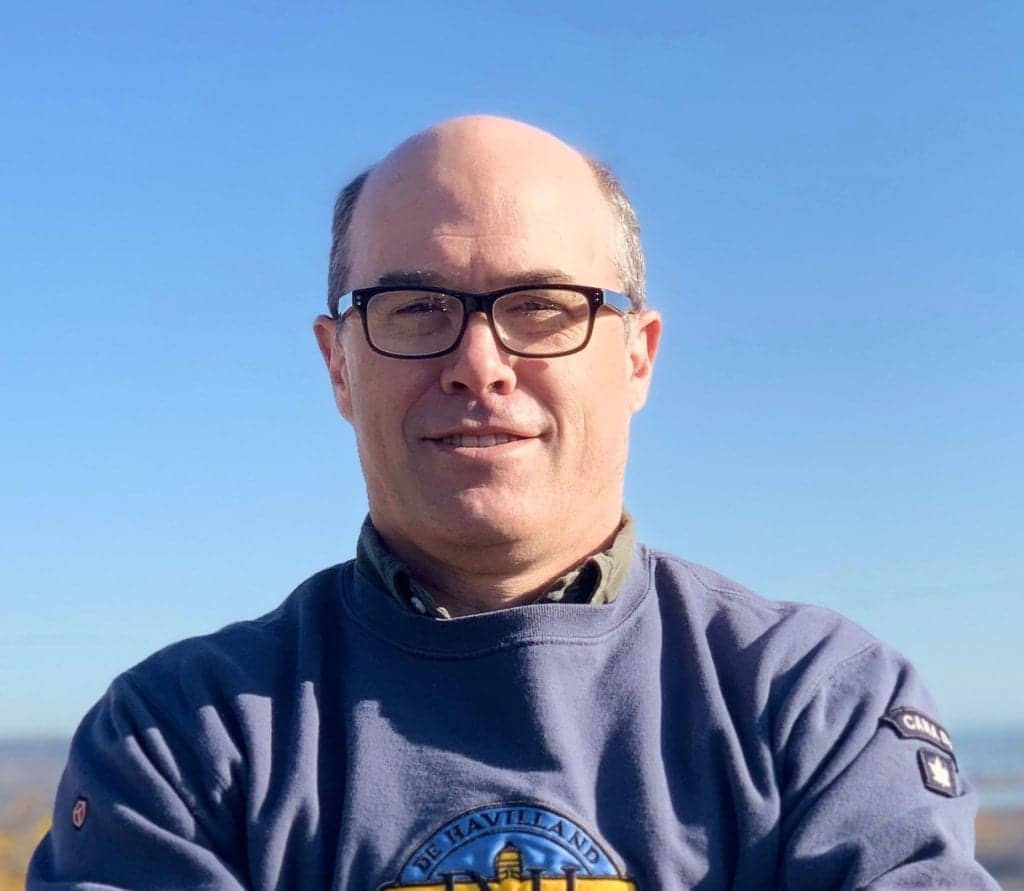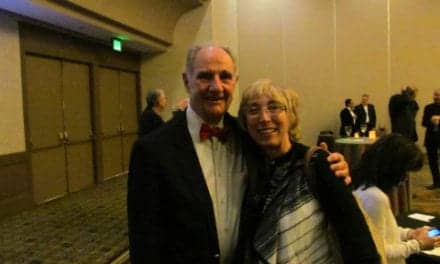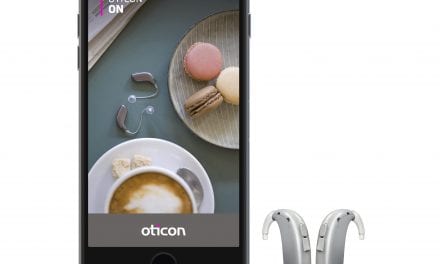By Karl Strom, editor
An estimated 2200 audiologists, students, and industry experts met—in person!—for the 2022 American Academy of Audiology (AAA) AudiologyNOW! Convention at America’s Center in St Louis on March 30-April 2. The AAA convention was the first in-person conference by the organization since 2019, as the Covid-19 pandemic postponed the 2020 convention, and last year’s 2021 convention was held virtually.

As with last fall’s national hearing care conferences, this year’s AAA convention attendance may have been lighter than usual, but the event offered plenty for everyone. AudiologyNOW! kicked off with the full-day Academy Research Conference (ARC) on Wednesday, March 30, titled “Age-related hearing and Balance Decline” chaired by Karen Steel, FMedSci, and Judy Dubno, PhD. This was followed by a wide range of educational content during the next three days that included over 100 educational presentations, industry symposiums, grand rounds, feature sessions, and research podiums coordinated by Conference Chair and Missouri State University professor Wafaa Kaf, PhD, and colleagues Nicholas Reed, PhD, of Johns Hopkins and AAA President Sarah Sydlowski, AuD, PhD, MBA of the Cleveland Clinic.

Featured prominently in this year’s educational offerings were topics related to over-the-counter (OTC) hearing aids, reimbursement issues, and diversity, equity, and inclusiveness in hearing healthcare. Related to this last topic, a special 3-hour clinical education session titled “Belonging, Equity, Diversity, and Inclusion–Addressing Microaggressions in Clinical Education” was held on Saturday morning. Additionally, the Marion Downs Lecture in Pediatric Audiology focusing on “Bias, Equity, and Early Childhood Development” was presented by Arie Nettles, PhD. Grand Round topics included Cochlear Implants, Amplification, Vestibular, Adults, and Pediatrics.
One of AAA’s most popular annual seminars, “Hearing Aids in Review” celebrated its 20th anniversary with regular hosts Gus Mueller, PhD, and Catherine Palmer, PhD, who introduced Ryan McCreery, PhD as the newest member of the panel which reviews important hearing research and scientific publications of the past year (see photo montage below). Additionally, a sneak peek at MarkeTrak 2022 survey results were offered by Hearing Industries Assn (HIA) President Kate Carr and veteran industry audiologist Thomas Powers, PhD, of Powers Consulting (a summary of the data is scheduled to appear in the May 2022 edition of Hearing Review).
Although the exhibits of the industry’s largest companies were noticeably scaled down compared to previous years, the HearTECH Expo hall provided attendees with an excellent look at products and services from over 100 companies and organizations. In particular, a special HearTECH Hub was the center of some of the event’s best product and business-related educational presentations, including manufacturers’ panels and expert advice on topics ranging from “Shaping Priorities for Audiology Research” to “Audiology and OTC.” First-time exhibitors this year included at least two companies expected to compete in the OTC hearing aid market, Lucid Audio and Soundwave Hearing, and some of the most prominent new product introductions included mini-BTEs for the Oticon Polaris platform, Ahead Simulations’ Audio CARL, Whisper AI’s fifth software upgrade, and the new tinnitus solutions company Neuromod which plans soon to bring its Lenire system to the United States pending FDA clearance.
Special events and attractions this year included the annual AAA Foundation Happy Hour, both a professional headshot and a selfie station, International Reception, the Student Academy of Audiology (SAA) Mix and Mingle, a 5K fun/run walk to benefit local SAA chapters, and a Friday evening “Audiology Night Out at the Biergarten at Anheuser-Busch.” The Academy’s Membership Meeting was held on Saturday morning (closed to the press).

Audiology’s “Musts” for Future Change
Change is good. Unless you can’t change. During the AudiologyNOW! General Session, AAA members were introduced to Patrick Gallagher, MBA, the organization’s new executive director, who emphasized that any great organization needs support—and more importantly, involvement—from its members. “When I joined the academy last March, early on, I was asked what I want to do as executive director,” explained Gallagher. “My response was ‘I’ll do whatever the board decides.’ Now, granted, that’s not a complete answer, but it reflects that the policy of the Academy is set by its members. It’s not set by some unknown group. It’s not set by staff. It is set by the board that you the members elect.”
One key message from Gallagher and AAA President Sydlowski was that the future of audiology is now in the hands of those who step up and ensure that it both changes and becomes recognized for its rightful place in patient-centric and value-based healthcare. The disruptive forces confronting the profession—including reimbursement and third-party payer issues, OTC hearing aids and hearables, online services, future Medicare coverage for hearing aids, and more —are necessitating changes in the way audiologists do business, provide services based on best practices and the measurement and reporting of patient outcomes, and how the profession is viewed in the overall healthcare system, according to Dr Sydlowski.
“The good news is from payers, to legislators, to regulators, to consumer electronics companies, to the mainstream media and beyond, there is an increasing recognition that hearing health matters,” said Sydlowski. “The bad news is ‘hearing care’ and ‘hearing aid’ are terms that are frequently used interchangeably, and ‘audiologists’ are often viewed as salespeople and a distribution channel rather than clinical professionals. There are efforts underway to equate hearing aid dispensers with audiologists in the eyes of the federal government. The devices upon which we’ve tightly affiliated ourselves are becoming commodities—with the risk that we become commodities right along with them. Clinical decisions are being determined by non-clinical legislators. Industry is considering vertical integration strategies. Hearables might have more of an impact than OTC hearing aids. We are not currently recognized or reimbursed adequately for the services and expertise we are licensed to provide, and emphasizing the quality of our services [in retail channels] is not big enough, bold enough, or impactful enough to differentiate us.

“We must think more expansively about the story of who we are and who we can be,” continued Sydlowski. “And most importantly, we cannot be the only voices telling that story. Audiologists have so much to offer our patients and healthcare overall…Recent disruptions have inspired a sense of urgency to insist that we are indispensable. We are surprised and frustrated when our message of best practices and the value of managing hearing loss early and well are overlooked in favor of focus on accessibility and affordability.”
Dr Sydlowski contends that the profession has unnecessarily narrowed its scope and focused on the approximately 18 million people who are pursuing audiological care and purchasing hearing aids, while mostly ignoring the masses still grappling with their unaddressed hearing and balance problems. “Here’s the great news: We have so much opportunity. Hearing loss is a largely untapped market…We aren’t seeing hundreds of device companies springing up because of these roughly 18 million people—or 20% of those with hearing loss have chosen to pursue intervention—it’s because of the 80% who haven’t made a decision yet,” she notes.
“If we want to create a virtuous cycle that allows us to continue to prosper and reach more people who need us…we must leverage our influence to demonstrate that audiologists [are] not even just critical in the management of hearing, we are vital to health, period! We can improve the entire range of the hearing experience—from hearing enhancement, to hearing protection, to identification and management of hearing loss using a variety of hearing devices, from OTC to implantable plus services like counseling and rehab. But if we want to be effective in telling the story of audiology and the value we deliver to healthcare and to our communities, there are several indisputable ‘musts’:
- We must be willing to bill for our services, whether or not they’re reimbursable.
- We must be able to defend those practices with current well researched clinical practice guidelines, physician statements, and other strategic documents.
- We must actively build partnerships with interdisciplinary collaborators from endocrinologists to primary care to stroke teams, so others demand our care because they recognize our value.
- We must fund research that directly supports our ability to practice, such as studies that provide evidence to the US Preventive Services Task Force for mandating adult hearing screening.
- And we must stop letting others dictate the path we will follow and the story we tell, because we allow ourselves to be in a position of reacting to the latest regulation or legislation.
- We must envision the ideal future for healthy hearing, and be the experts who can justify and deliver that target.
- We must familiarize ourselves with the value-based care environment into which our health system is evolving and consider the role we play in that model.
- We must evolve our training programs to include medically oriented prerequisites that prepare tomorrow’s professional to be a fully integrated member of a healthcare team.
“And we absolutely have to stop believing that any of this change will just happen without the concerted effort and contribution of each and every one of us,” continued Dr Sydlowski. “We must apply our personal influence to our patients, our payers, our legislators, our alma maters, local media, and referring providers. We must demonstrate our value not just through our services or the diversity of technology we provide, but through patient reported outcomes, objective measures, and the testimonies of our patients and non-audiology colleagues.
“We must contribute to our foundation into our PAC and trust they will fund the future we expect and desire. We must invest in our professional organizations like our careers depend on it—because they do! Healthcare needs us. Our patients absolutely benefit from our care. This opportunity is ours to lose or ours to gain. We have the ears of more people than ever before. They are listening. It’s up to us to effectively tell the story of who we are, and empower others to insist that we are essential to healthcare. If we don’t write our own story, who will?”
Dr Sydlowski urged other audiologists to recognize their professional strengths, become involved members of AAA, and help the Academy and its collective membership embrace change, forging a positive future for the profession.
The keynote speaker for the General Assembly was master storyteller Paul Smith who outlined the elements of impactful storytelling that, among other things, help with decision making and relationship building.
Honors and Awards
The Academy recognized five audiologists for their seminal contributions to hearing healthcare:

- James Jerger Career Award for Research in Audiology: Deanna K. Meinke, PhD
- Marion Downs Pediatric Audiology Award: Shelley Moats, AuD, PASC
- Samuel F. Lybarger Industry Award: A.U. Bankaitis, PhD
- Honors of the Academy: Ian M. Windmill, PhD
- Early Career Audiologist Award: Lori Zitelli, AuD
Additionally, Dr Sydlowski bestowed the AAA President’s Award to past-presidents Catherine Palmer, PhD, Director of Audiology at the Pittsburgh Medical Center, and Angela Shoup, PhD, Executive Director of the Callier Center at the University of Texas at Dallas, for their tireless work and service to the Academy.
Next Year
AAA 2023+HearTECH Expo will be held in Seattle on April 19-22. Call for abstracts will open in August, and registration will open in November. For more information, visit: https://www.audiology.org
About the author: Karl Strom is editor of The Hearing Review and has been reporting on hearing healthcare issues for over 25 years.






